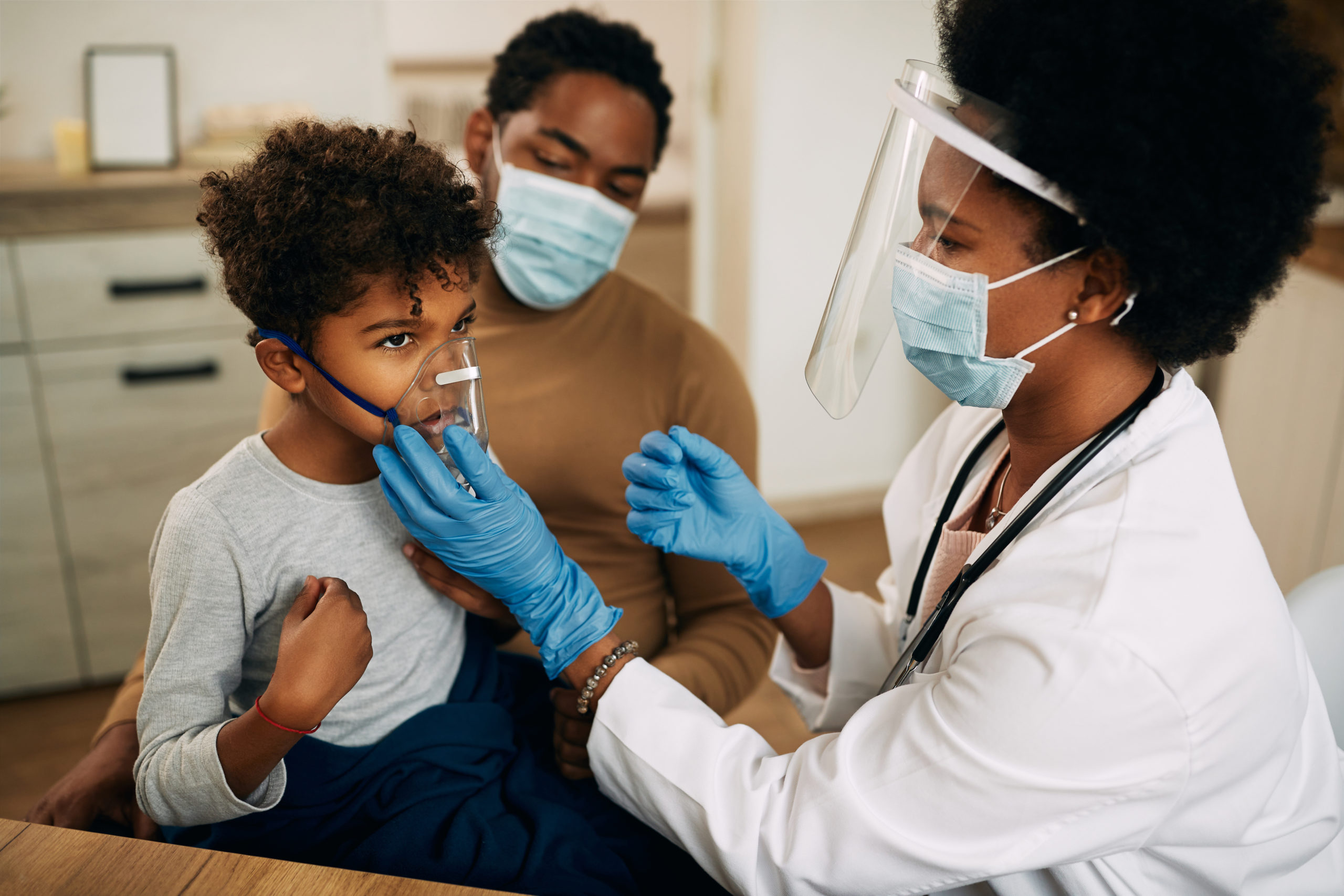
African American pediatrician using nebulizer during inhaling therapy of a small boy due to coronavirus pandemic.
Arkansas Delta Informer Staff – May 5, 2022 – Researchers at the University of Arkansas for Medical Sciences (UAMS) Office of Community Health & Research have found that Black Arkansans who reported racial discrimination in the criminal justice system also experienced higher levels of hesitancy toward COVID-19 vaccines.
According to the Arkansas Department of Health, only around 41% of Black Arkansans five years of age and older have been vaccinated against the coronavirus. In some Arkansas counties, more than 70% of the Black population remains unvaccinated.
UAMS researchers collected data from a random sample of adult Arkansans in July 2021. About 51% of Black Arkansans 18 and older reported some level of vaccine hesitancy. Researchers explored multiple factors that could lead to vaccine hesitancy, including sociodemographic characteristics such as age, gender and education; exposure to COVID-19 and COVID-19-related deaths; and experiences of racial discrimination. While racial and ethnic disparities in vaccine hesitancy are well documented, the study explored within-group variation among Black respondents to analyze the diversity of experiences, and how those experiences relate to vaccine hesitancy
“This research shows that COVID-19 vaccine hesitancy varies among Black adults, and that experiences of racial discrimination with police, or in courts, are an important factor in understanding that variation,” said Don Willis, Ph.D., a researcher and assistant professor in the UAMS Office of Community Health & Research. “This data suggests that we need to pay special attention to how racial discrimination in policing and courts may impact public health, preventive care like vaccination campaigns and racial health disparities.”
Researchers found that individuals who reported having a close friend or family member die from COVID-19 were 70% more likely to experience COVID-19 vaccine hesitancy. Those who had experienced discrimination with police or in the criminal justice system were 161% more likely to be vaccine hesitant. Other experiences of racism, such as in school or housing, were not significantly associated with vaccine hesitancy among Black adults.
The UAMS findings were published in the Journal of Racial and Ethnic Health Disparities.
The COVID-19 pandemic is expected to reduce life expectancy by more than two years for Black individuals in the United States. According to the Centers for Disease Control, Black populations have faced higher rates of cases, hospitalizations and deaths due to the pandemic than white, non-Hispanic populations.
As of Monday, May 2, the Arkansas Department of Health has reported more than 11,300 deaths from COVID-19. Less than 56% of the state’s eligible population is fully immunized. According to the ADH, about 80% of the state’s COVID-19 hospitalizations since last February are among unvaccinated patients.
For information about COVID-19 vaccination and testing services in Northwest Arkansas, visit nwa.uams.edu/covid.
#30#



 Sign up as a free Arkansas Delta Informer digital subscriber and get breaking news and weekly news roundup in your inbox.
Sign up as a free Arkansas Delta Informer digital subscriber and get breaking news and weekly news roundup in your inbox.